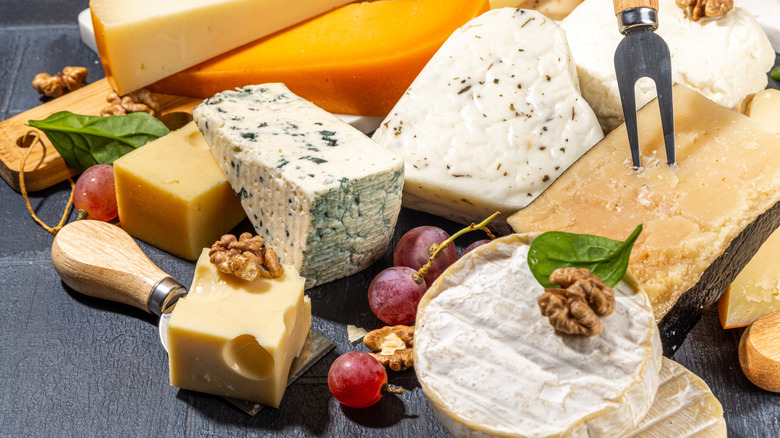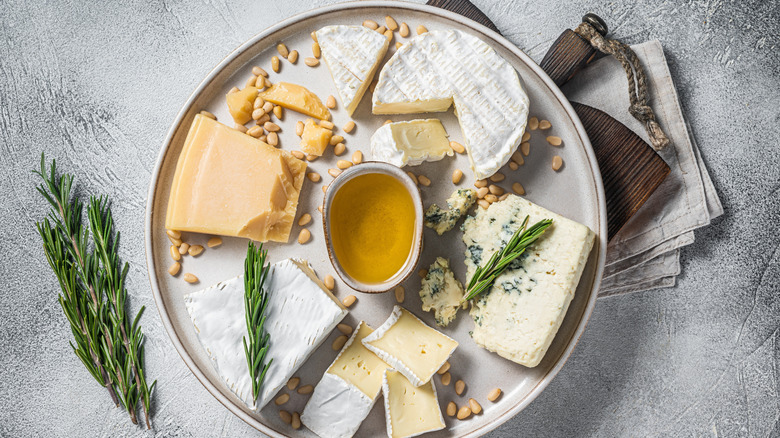The Sharp Cheeses All Lactose-Intolerant Foodies Should Know By Heart
Having a palate that adores flavor and a digestive system that abhors lactose isn't for the faint of heart. Cheese is something that elevates a plethora of dishes, from soups and salads to pasta and pizza. While you may avoid the ingredient due to your lactose intolerance, there are a few sharp cheeses that even the most sensitive stomachs can likely enjoy.
Lactose is a sugar found in mammal milk that eventually makes its way into dairy products like cheese. Fresh, milky cheeses such as mozzarella, ricotta, and burrata are pretty rife with lactose. However, the sugar isn't as prevalent in sharper, aged cheeses like Parmesan, gouda, Manchego, or Pecorino Romano. During the aging process, bacteria transforms lactose into lactic acid; the longer a cheese ages, the less lactose it's bound to have. It also helps that cheesemaking involves separating the whey liquid (which contains more lactose) from the curds. The curds are then used to make cheese that, when aged for longer, can be eaten by those with a sensitivity to the milk sugar.
Although opting for the types of cheeses that are safe for lactose intolerance does slightly limit your choices, there are still a host of tasty options to choose from. As cheeses age, their flavors continue to develop, giving them a more pungent taste. Still, the cheeses range in notes and profiles. While Manchego is fruity and sweet, Parmesan's taste is the very definition of umami. If you prefer something more tangy, sharp cheddar should be your top choice.
Soft cheeses and lactose intolerance
As the taste of cheese gets stronger throughout the aging process, the texture tends to follow suit. The ingredient loses moisture as it grows older, giving cheeses like Parmesan or Pecorino Romano their signature hard, grainy texture. While these harder cheeses do boast tons of flavor, sometimes we crave a smooth, creamy consistency that isn't as pungent.
If you're looking for something that fits the bill but are still concerned about the lactose content, you don't have to turn to spring for dairy-free cheese. Instead, go with Brie. This French cheese is buttery and creamy, but it doesn't have the same high lactose levels as its fellow soft counterparts. While the aging process helps lower the lactose in Brie, the way it's aged gives it a smooth feel. The cheese is soft-ripened, meaning it's covered in mold that develops a rind, keeping the inside moist.
Thanks to its creaminess and mellowed taste, there are various ways to serve and eat Brie. It's delicious when spread on crackers with a dollop of honey and jam or baked with figs and walnuts. Aside from Brie, Camembert is another soft-ripened cheese that's perfect when you want something creamy with a low lactose level. It has a slight caramelized taste, with earthy notes of mushrooms and nuts, making it a bit stronger than Brie. However, Camembert is just as buttery, with a lower lactose content.

